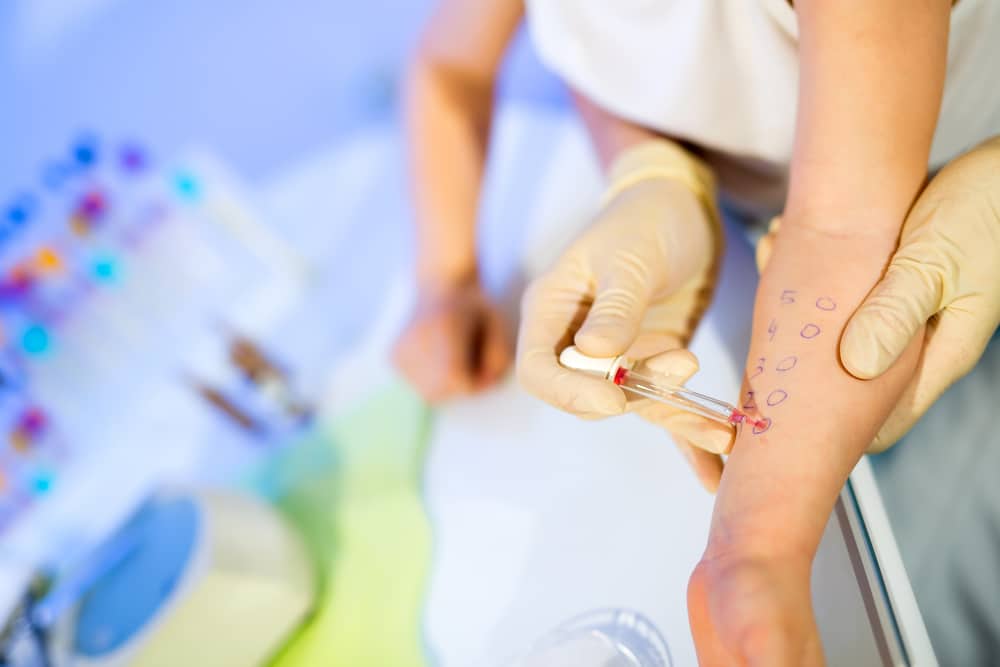Contents:
- Medical Video: Your Hormones and You
- What are the functions of the hormone progesterone?
- The function of the hormone progesterone in a man's body
- How can I increase progesterone intake?
- Increase progesterone production with progestin hormone therapy
Medical Video: Your Hormones and You
You may be familiar with the hormone progesterone, especially for Eve. The hormone progesterone is a hormone that helps smooth pregnancy and prospective fetal growth and development until the time of birth. However, the function of the hormone progesterone is not just that. Come on, get to know more about this one hormone!
What are the functions of the hormone progesterone?
The hormone progesterone is a female sex hormone produced by the ovaries (ovaries) and adrenal glands.
Besides functioning to protect the pregnancy and embryo growth and development, progesterone functions to regulate the menstrual cycle by controlling the growth of uterine wall tissue (endometrium). In pregnant women, progesterone is also produced by the placenta.
Before and during pregnancy, progesterone plays a role in the following process:
- Produce egg cells during ovulation.
- Strengthens uterine tissue in preparation for attaching (implantation) fertilized eggs.
- Maintenance of endometrium during pregnancy.
- Preventing the ovaries from producing too many eggs during pregnancy.
- Prevent multiple pregnancies.
- Stop the contraction of the muscles in the posterior fallopian tubes to move the egg.
- Embryo growth.
- Strengthening the pelvic muscles for labor preparation.
- Breast milk production.
Very low levels of progesterone in women can cause one or more of the following consequences:
- Infertility.
- Miscarriage.
- Increased sexual arousal.
- Increasing abnormal weight.
The function of the hormone progesterone in a man's body
Men also have progesterone, although to a lesser extent than women. In older men, progesterone also functions to keep the body functioning normally. One function of the hormone progesterone for men is to stimulate testosterone production.
Lack of progesterone can cause men to experience one or more of the following conditions:
- Low Libido.
- Hair loss abnormally.
- Increased weight.
- Constant fatigue.
- Depression.
- Breast growth in men (also known as gynecomastia)
- Erectile dysfunction.
- Impotence.
- Fragile bones and / or muscles.
- Increased risk of osteoporosis, arthritis, prostate cancer, and prostatism.
How can I increase progesterone intake?
Some of the following foods are good sources of progesterone, including:
- Various types of beans.
- Vegetables such as broccoli, cabbage, mini cabbage (Brussels sprouts), cauliflower, kale, and others.
- Various types of whole wheat.
In addition, certain lifestyle habits can also help increase natural progesterone levels in the body, including:
- Have a balanced diet and exercise regularly to maintain a healthy weight.
- Reduce stress.
- No physical activity that is too burdensome.
In addition, you can also use progesterone supplements or creams that are easily absorbed by the body.
Increase progesterone production with progestin hormone therapy
Low progesterone levels in the body can cause various problems. So, your doctor can recommend you undergo hormone therapy with progestin.
Progestins are synthetic steroid hormones that act like natural progesterone. Progestins are commonly used for the following purposes:
- Contraception: Progestins are contained in a variety of family planning devices, including birth control pills, vaginal gels, implants (contraceptive birth control), spiral birth control (IUD), and injection KB.
- Menstrual problems.
- Abnormal uterine bleeding.
- Amenorrhea or no menstruation.
- Endometriosis.
- Abnormal thickness of the uterine wall.
- Treatment of breast cancer, kidney cancer, or uterine cancer.
- Abnormal hair growth.
- Changes in sexual arousal.
- Hormonal anticancer therapy.
- Abnormal breast pain.
- Prevent premature birth.
- Acne.
- Care for infertility.
- Breast milk production.
When taking a progestin, patients can experience one or more of the following side effects:
- Headache.
- Breast pain
- Ulcer (dyspepsia).
- Constipation or diarrhea.
- Gag.
- Abnormal appetite changes.
- Increased weight.
- Fluid retention.
- Fatigue.
- Pain in joints, muscles, or bones.
- Irritability and / or frequent mood swings
- Too worried.
- Symptoms of colds, including sneezing and coughing.
- Abnormal vaginal discharge.
- Difficulty urinating.
Other side effects that are more serious and need to be consulted immediately include:
- Clots in the breast.
- Dimples that appear on the breast skin area.
- Liquid discharge from the nipple.
- Putting in.
- Crusty or scaly nipples.
- Stools that are colored like clay.
- Migraine.
- Dizziness is very great.
- Difficulty speaking.
- Malfunctions in the body, such as weakness or numbness.
- Difficulties in coordinating movements.
- Shortness of breath.
- Fast and heavy heartbeat.
- Sharp chest pain.
- Coughing up blood.
- Swollen foot.
- Visual impairment.
- Eyes are prominent (also known as exophthalmos).
- Double vision.
- Abnormal vaginal bleeding.
- Hands trembling uncontrollably.
- Seizures.
- Swollen stomach or stomach ache.
- Depression.
- Itching, skin rash.
- Difficulty swallowing.
- Hoarse throat.
Patients who have had one or more of the following conditions should also avoid taking progestins:
- Liver tumors.
- Genital cancer.
- Breast cancer.
- Artery-related diseases.
- Abnormal vaginal bleeding before.
- Acute porphyria
- Idiopathic jaundice.
- Occurrence of pruritus or pemphigoid during pregnancy.
Hello Health Group does not provide medical advice, diagnosis or treatment.












